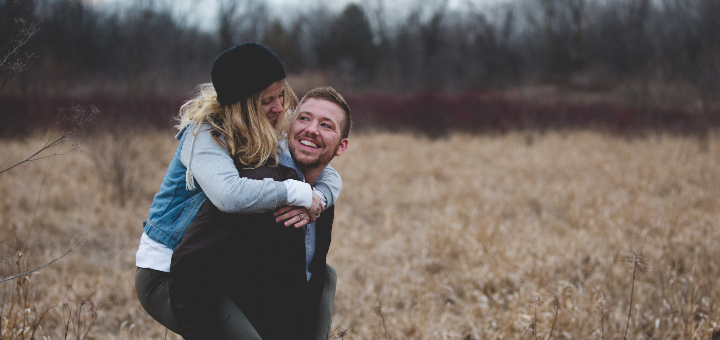
 Image credit: By Josh Willink (2018), Pexels.com, CC0/PD[/caption]
My husband came home from work heavily burdened this week. He’s in a period of adjustment in a new job, which is always tricky even in the best of circumstances. He was mostly quiet, his eyes focused on his plate at dinner.
I was off-balance, too. I had closed my laptop after way too many minutes reading about cities nationwide disintegrating into civic arguments and finger-pointing under the strain of the coronavirus pandemic. When I wasn’t jumping into the online fracas about precautionary measures myself, jealously guarding my feelings of self-righteousness, I was playing phone tag with many doctors, addressing troubling medical mysteries involving three of our own children.
Throughout our evening, we danced around each other quietly, offering logistical help while carefully neglecting to talk about anything substantial. The air was heavy with our unspoken words and brooding. And over the course of that night and the next morning, at too many inopportune moments, his frustrations or mine leapt to the fore, as I answered a child too sharply or he shrugged morosely when I asked how I could help.
We were keenly aware of each other’s concerns and burdens. In fact, we were desperately trying not to add on to each other’s piles of trouble. It was an act of sacrifice to try to hold our burdens individually, sparing the other from having to deal with something that wasn’t theirs. In a marriage, it is a common and well-intentioned course of action to want to spare loved ones an extra suffering or burden.
But it’s a mistake.
We were choosing a little good (not adding to a burden) over a greater good (living out our sacramental marriage as one flesh). But leaning in on the sacrament of our marriage comes with an abundance of grace to aid us. Trying to hold it all in doesn’t — it depends almost entirely on our natural, human strength, which is frail and limited.
Don’t silo your own burdens and concerns in an effort to spare your spouse who is also under stress. We are meant to share our sufferings and joys. Self-sacrifice is necessary and important, but often the vulnerable self-sacrifice of needing the other person is more important, and more grace-filled, than the “selfish” self-sacrifice of shouldering burdens on your own.
Somehow, there is a sum-is-greater-than-the-parts effect when we bring our burdens into the community of persons in our marriage. Even when that’s just a community of two.
In truth, that small community of two mirrors the community of persons that is God. The Father loves the Son, the Son receives and returns the Father’s love, and the interaction between them is creative and generative: it is the Holy Spirit. The sum of the love exchanged between two yields something greater still.
Over the next few days, in stolen moments, gingerly and carefully, we started to turn back to each other. He explained the stress he was under, and I offered mine. The telling of these things was a relief for the teller, and an opportunity for generous love for the listener. The fastest and most effective way out of your own struggles is usually into someone else’s -- to explain your needs with vulnerability and honesty, to agree to tackle them together instead of alone.
This is true in friendships, in parishes, in any small faith community. But the small faith community of a marriage is a very special one indeed. And graces are available in every sacrament to those who open themselves, which (again) requires vulnerability. The sacrament of marriage requires a very special kind of vulnerability -- a daily one, a choosing-over-and-over in a thousand tiny moments one.
Rest assured that, once you and your spouse open yourselves to receiving those sacramental graces, they are more than equal to any troubling situation of any size that you may face … together.*
*Full disclosure: I was struggling mightily to write this article. I asked my husband for input, and we co-wrote this piece. Co-author credit and many thanks to Todd Wilkens.
Image credit: By Josh Willink (2018), Pexels.com, CC0/PD[/caption]
My husband came home from work heavily burdened this week. He’s in a period of adjustment in a new job, which is always tricky even in the best of circumstances. He was mostly quiet, his eyes focused on his plate at dinner.
I was off-balance, too. I had closed my laptop after way too many minutes reading about cities nationwide disintegrating into civic arguments and finger-pointing under the strain of the coronavirus pandemic. When I wasn’t jumping into the online fracas about precautionary measures myself, jealously guarding my feelings of self-righteousness, I was playing phone tag with many doctors, addressing troubling medical mysteries involving three of our own children.
Throughout our evening, we danced around each other quietly, offering logistical help while carefully neglecting to talk about anything substantial. The air was heavy with our unspoken words and brooding. And over the course of that night and the next morning, at too many inopportune moments, his frustrations or mine leapt to the fore, as I answered a child too sharply or he shrugged morosely when I asked how I could help.
We were keenly aware of each other’s concerns and burdens. In fact, we were desperately trying not to add on to each other’s piles of trouble. It was an act of sacrifice to try to hold our burdens individually, sparing the other from having to deal with something that wasn’t theirs. In a marriage, it is a common and well-intentioned course of action to want to spare loved ones an extra suffering or burden.
But it’s a mistake.
We were choosing a little good (not adding to a burden) over a greater good (living out our sacramental marriage as one flesh). But leaning in on the sacrament of our marriage comes with an abundance of grace to aid us. Trying to hold it all in doesn’t — it depends almost entirely on our natural, human strength, which is frail and limited.
Don’t silo your own burdens and concerns in an effort to spare your spouse who is also under stress. We are meant to share our sufferings and joys. Self-sacrifice is necessary and important, but often the vulnerable self-sacrifice of needing the other person is more important, and more grace-filled, than the “selfish” self-sacrifice of shouldering burdens on your own.
Somehow, there is a sum-is-greater-than-the-parts effect when we bring our burdens into the community of persons in our marriage. Even when that’s just a community of two.
In truth, that small community of two mirrors the community of persons that is God. The Father loves the Son, the Son receives and returns the Father’s love, and the interaction between them is creative and generative: it is the Holy Spirit. The sum of the love exchanged between two yields something greater still.
Over the next few days, in stolen moments, gingerly and carefully, we started to turn back to each other. He explained the stress he was under, and I offered mine. The telling of these things was a relief for the teller, and an opportunity for generous love for the listener. The fastest and most effective way out of your own struggles is usually into someone else’s -- to explain your needs with vulnerability and honesty, to agree to tackle them together instead of alone.
This is true in friendships, in parishes, in any small faith community. But the small faith community of a marriage is a very special one indeed. And graces are available in every sacrament to those who open themselves, which (again) requires vulnerability. The sacrament of marriage requires a very special kind of vulnerability -- a daily one, a choosing-over-and-over in a thousand tiny moments one.
Rest assured that, once you and your spouse open yourselves to receiving those sacramental graces, they are more than equal to any troubling situation of any size that you may face … together.*
*Full disclosure: I was struggling mightily to write this article. I asked my husband for input, and we co-wrote this piece. Co-author credit and many thanks to Todd Wilkens.
Copyright 2020 Christy Wilkens
About the Author

Christy Wilkens
Christy Wilkens, wife and mother of six, is an armchair philosopher who lives in Austin, TX. She writes at FaithfulNotSuccessful.com about disability, faith, doubt, suffering, community, and good reads. Her first book, Awakening at Lourdes: How an Unanswered Prayer Healed Our Family and Restored Our Faith, a memoir about a pilgrimage with her husband and son, will be released by Ave Maria Press in 2021.


.png?width=1806&height=731&name=CatholicMom_hcfm_logo1_pos_871c_2728c%20(002).png)
Comments